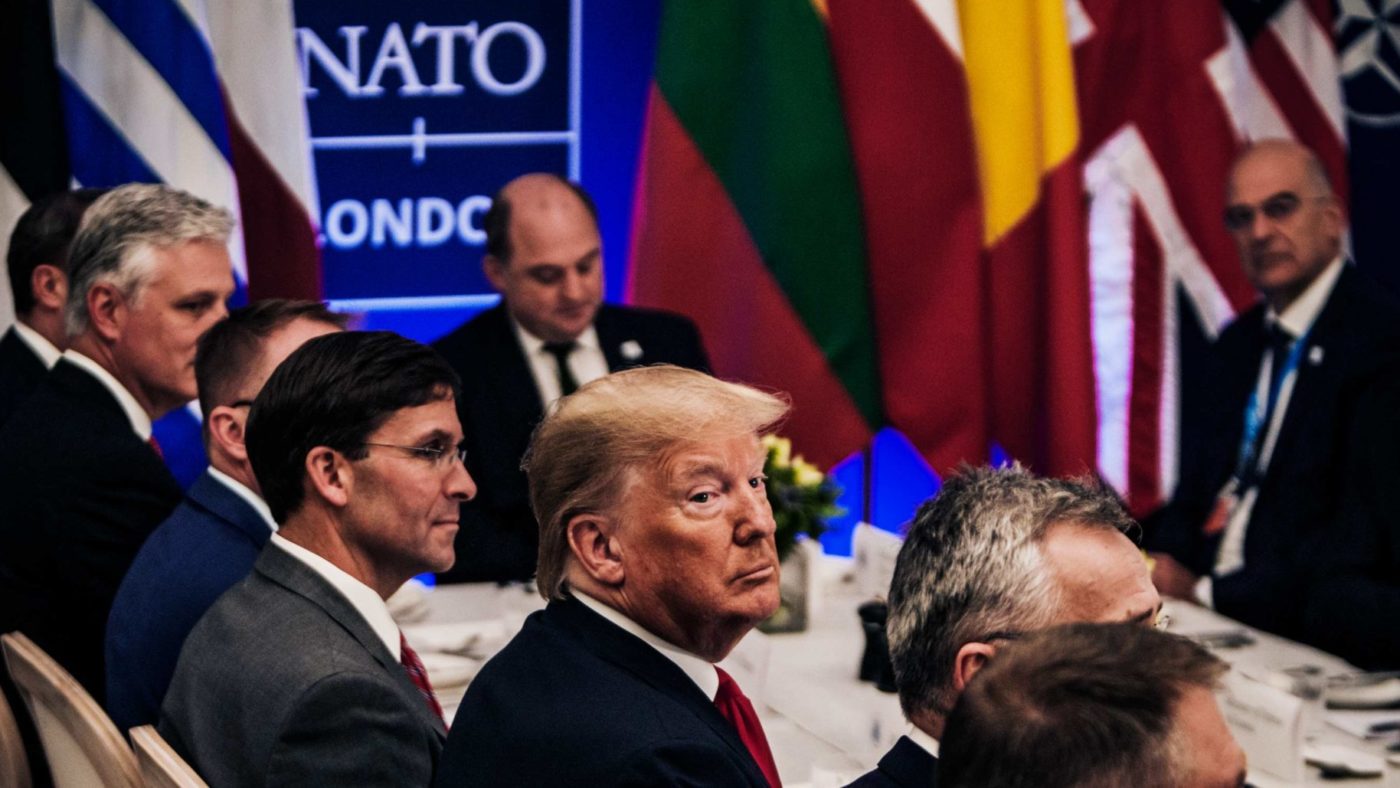Like the great majority of European public opinion, I hope Vice-President Biden wins next month, and wins big. Though the decision is American voters’ alone, the presidency of Donald Trump has had catastrophic effects for us Europeans too. The oddity is that the diplomatic damage that the Trump administration has inflicted on America’s allies demonstrates the hollowness of a longstanding myth that the radical left has long been partial to. This is the notion that the US is an overbearing and even aggressive superpower that uses Nato as its vehicle for projecting force.
It’s not true. It’s never been true. The US is a reluctant behemoth, not an imperial power. The danger for us Europeans is not of too much transatlantic intervention in our affairs but of too little. It’s demonstrated in comments this week by Kay Bailey Hutchison, the outgoing US ambassador to Nato. Ms Hutchison told Sky News that Mr Trump “has come to the realisation that Nato is very valuable”. She added that, if re-elected, Mr Trump will honour the commitment requiring all Nato member-states to come to the defence of another if called upon to do so.
These are extraordinary comments, as they indicate that the free world has been led for nearly four years by a man who does not understand the nature, let alone the necessity, of collective security. Throughout his period of office, Mr Trump has demonstrated that he is at ease with autocrats, such as Vladimir Putin and Kim Jong-Un, while despising democratic allies. He’s previously claimed, in defiance of the evidence of Russia’s alteration of the boundaries of Europe by force and use of nerve agent in a British city, that Nato is “obsolete”. We now know that he regards a treaty obligation, specified under Article 5 of the North Atlantic Treaty, as purely optional. His presidency thereby undermines Western defence and effective deterrence.
That’s why large numbers of Republicans who’ve served in national security posts in government back Mr Biden. (They include an old friend and debating partner of mine, Colleen Graffy, who served in the GW Bush administration.) Mr Trump’s hostility to collective security demonstrates also just how fanciful is the notion that Europeans are subjugated by the US through our security alliances. And this has been a constant theme of the radical left in the post-war era.
President Truman set out the doctrine that bears his name in an address to Congress in March 1947. He noted that “totalitarian regimes imposed on free peoples, by direct or indirect aggression, undermine the foundations of international peace and hence the security of the United States”. Ever since, and especially with the formal establishment of Nato in 1949, the US has been crucial to liberty and security in Europe. The foreign policies of the post-war Attlee government recognised the stakes in binding the US to European defence. Opponents of this policy within the Labour ranks were few but vocal, and Attlee ensured the expulsion from the party of the most shameless of these unabashedly pro-Soviet MPs.
I came of political age in the 1980s, when anti-nuclear sentiment spread on the left and disastrously captured the Labour Party. The complaint was that, by deploying Cruise and Pershing missiles in Western Europe, Nato was enabling the US to fight a “limited” war without endangering itself. The claim was preposterous. It was a complete misunderstanding of the Nato deployment. These intermediate-range missiles were intended to bolster deterrence, by demonstrating to the Soviet Union that its own deployment of SS-20 missiles targeted on Western Europe could not confer a military advantage.
The problem had been raised by Helmut Schmidt, the West German chancellor, in an address to the International Institute for Strategic Studies in 1977. The US responded to Europe’s security needs. The notion that it was seeking to browbeat Europe into accepting its subordinate status as a forward base for American power was nonsense. Yet it was often heard in British debate at the time, put forward by the Campaign for Nuclear Disarmament and campaigners such as EP Thompson. Labour paid a heavy and deserved electoral price for abandoning its traditions and adopting the shibboleths of the anti-nuclear movement.
There is, however, a recent British political leader who shares Mr Trump’s aversion to Nato and its ethos – Jeremy Corbyn. In a leadership debate in 2016, he was repeatedly asked if, as prime minister, he would go to the aid of a Nato member-state if it was attacked by Russia. He refused to say he would, even though it’s a treaty obligation. Instead he offered this feeble equivocation: “I would want to avoid us getting involved militarily by building up the diplomatic relationships and also trying not to isolate any country in Europe – to bring them up. I don’t wish to go to war.”
Though they have different motivations, there is a nexus between the politics of Trump and Corbyn in their attitudes to Western security. Both men are entirely unfit for public office, in many ways, but the most basic is their heedlessness of the defence of democracy. It’s a cause that needs to be continually argued for in an anarchic and hostile international order.
Click here to subscribe to our daily briefing – the best pieces from CapX and across the web.
CapX depends on the generosity of its readers. If you value what we do, please consider making a donation.


